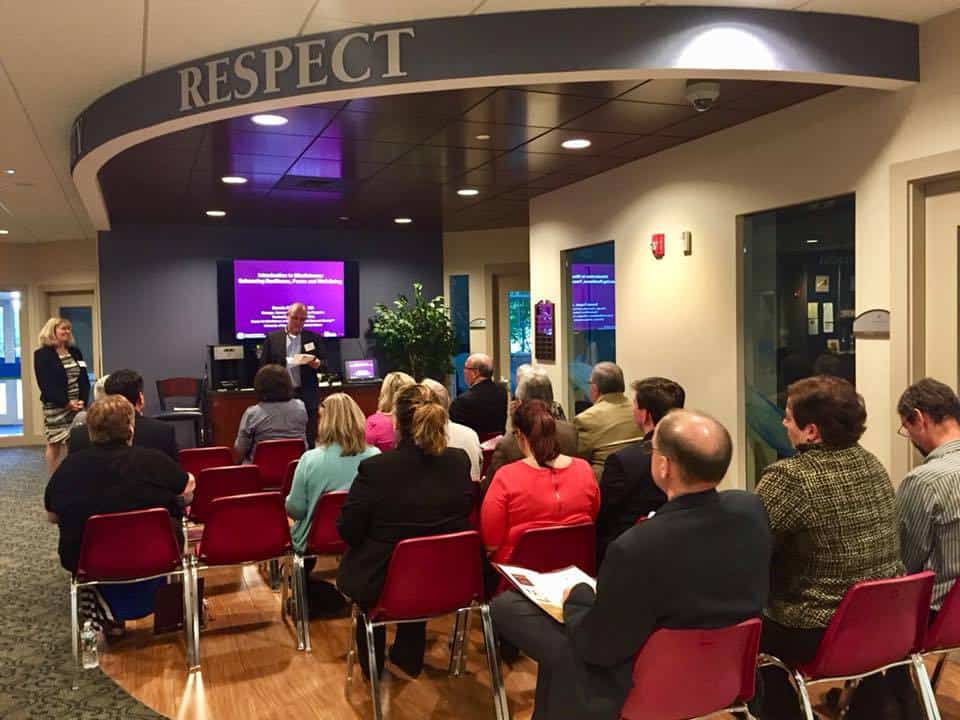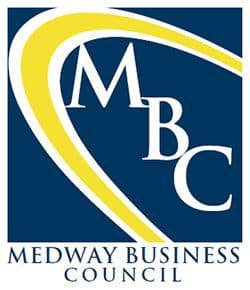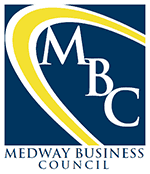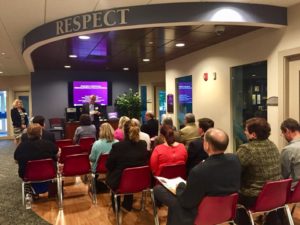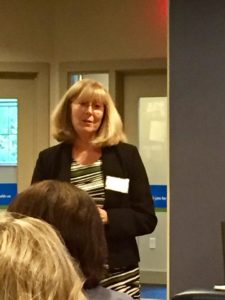Meeting Recap: Mindful, or mind full?
Did you know the average worker checks Facebook 21 times each day? Checks email 74 times daily? Shifts computer screens an average of 566 times each day (documents to email to websites and around and around…)? Do you call this a typical day or does it stress you out just thinking about these numbers?
Research has proven that mindfulness supports the growth of the hippocampus’ gray matter (learning, memory, resilience) and supports activity in the prefrontal cortex (executive function, perspective, emotional regulation, sense of well-being). So not only can this practice be effective for anxiety, depression, addiction, and burnout symptoms, but it has been proven to help lower high blood pressure, ease digestive issues, relieve headaches/migraines, and even impact your immune system among many other positive effects.
So what is mindfulness? Simple: mindfulness is paying attention in a particular way: on purpose, in the present moment, and non-judgmentally. What’s the downside of being distracted and jumping from one topic (or screen) to another? Forgetfulness, redundancy, increased mistakes, longer completion time/lost productivity, increased frustration and stress, and lost opportunities for creative and innovative ideas.
2. Notice when you become distracted – and gently return to what you are doing without judgment.
3. Before you speak, ask yourself: is it true, helpful, timely and kind?
4. Be a mindful listener. Lean in.
5. Take short mindful pauses for cognitive relaxation.
6. Keep trying – don’t judge yourself if you slip – consistency is key to this practice.
View other posts
